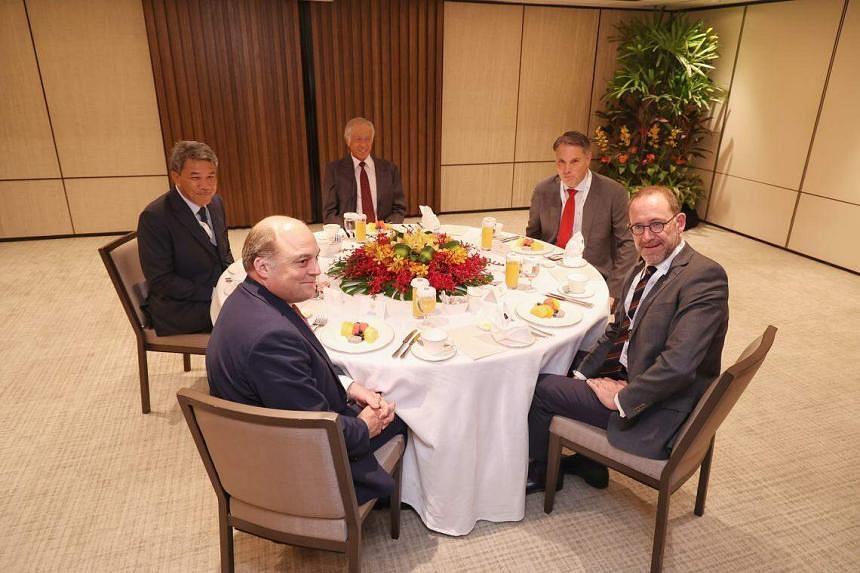SINGAPORE – The defence ministers of the Five Power Defence Arrangements (FPDA) countries are seeking to upgrade the level of their military drills, as they reaffirmed the value of the grouping amid great power rivalry in the region.
Speaking to reporters after an FPDA meeting on the sidelines of the Shangri-La Dialogue on Saturday, Australian Defence Minister Richard Marles said that the annual FPDA exercises are valuable for the countries’ defence forces.
“I think the direction in which we’re going in terms of... their evolution is greater complexity in those exercises, looking at ways in which we can understand our respective defence forces better and that we can interoperate at a higher and more complex level,” he said.
Singapore’s Defence Minister Ng Eng Hen, who hosted the breakfast meeting – a regular feature at the security forum – said that the upgrading is discussed among the five leaders because of good feedback from their military chiefs.
“They wanted to do more. So we have tasked our chiefs to do that,” he said.
The FPDA countries – Australia, Malaysia, New Zealand, Singapore and Britain – hold regular exercises aimed at building the ability to operate well together, as well as improving the proficiency of their armed forces. In recent years, they have come together for planning exercises, air drills, gunnery firing and manoeuvring drills in the sea.
Other than Dr Ng and Mr Marles, the other defence ministers at the meeting were Malaysia’s Mr Mohamad Hasan, New Zealand’s Mr Andrew Little, and Britain’s Mr Ben Wallace.
With the growing bifurcation between the United States and China affecting regional stability, Dr Ng noted that the FPDA is not named as an agreement nor an alliance.
“Because of that, it is of no threat to anyone, nor is it directed at any single country,” he said, adding that he hopes the FPDA will continue to be a force for stability.
Mr Marles believes that Australia’s commitment to Aukus – a trilateral security pact with the US and the United Kingdom that features the sharing of nuclear-submarine capabilities with Australia – does not contradict the FPDA’s agenda. Both contribute to the collective regional security, he said.
“I don’t think that Aukus cuts across any of the agenda of the FPDA, and... we would say that what we gained from Aukus is an ability for Australia to make a greater contribution to the peace and security of our region, and to the maintenance of a global rules-based order,” he said.
Mr Hasan, who was appointed in December, proposed for the FPDA to be “a pathway for greater strategic and defence cooperation” in training and capacity building.
He said Malaysia will work closely with FPDA members to pursue cooperation and the strengthening of its defence industry, advancing shared technology and conducting joint exercises.
Singapore’s Ministry of Defence said that during the meeting, the five leaders reaffirmed their nations’ commitment to the FPDA and acknowledged the significant progress that it has made since its inception in 1971.
They discussed the importance of the FPDA as a constructive and peaceful arrangement, which has served as an anchor for regional security and stability, said the ministry.


